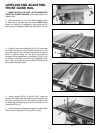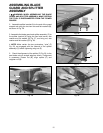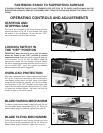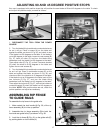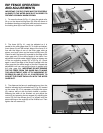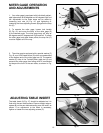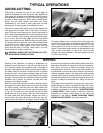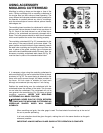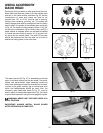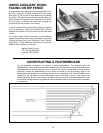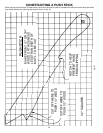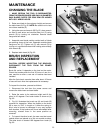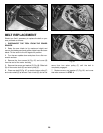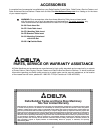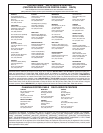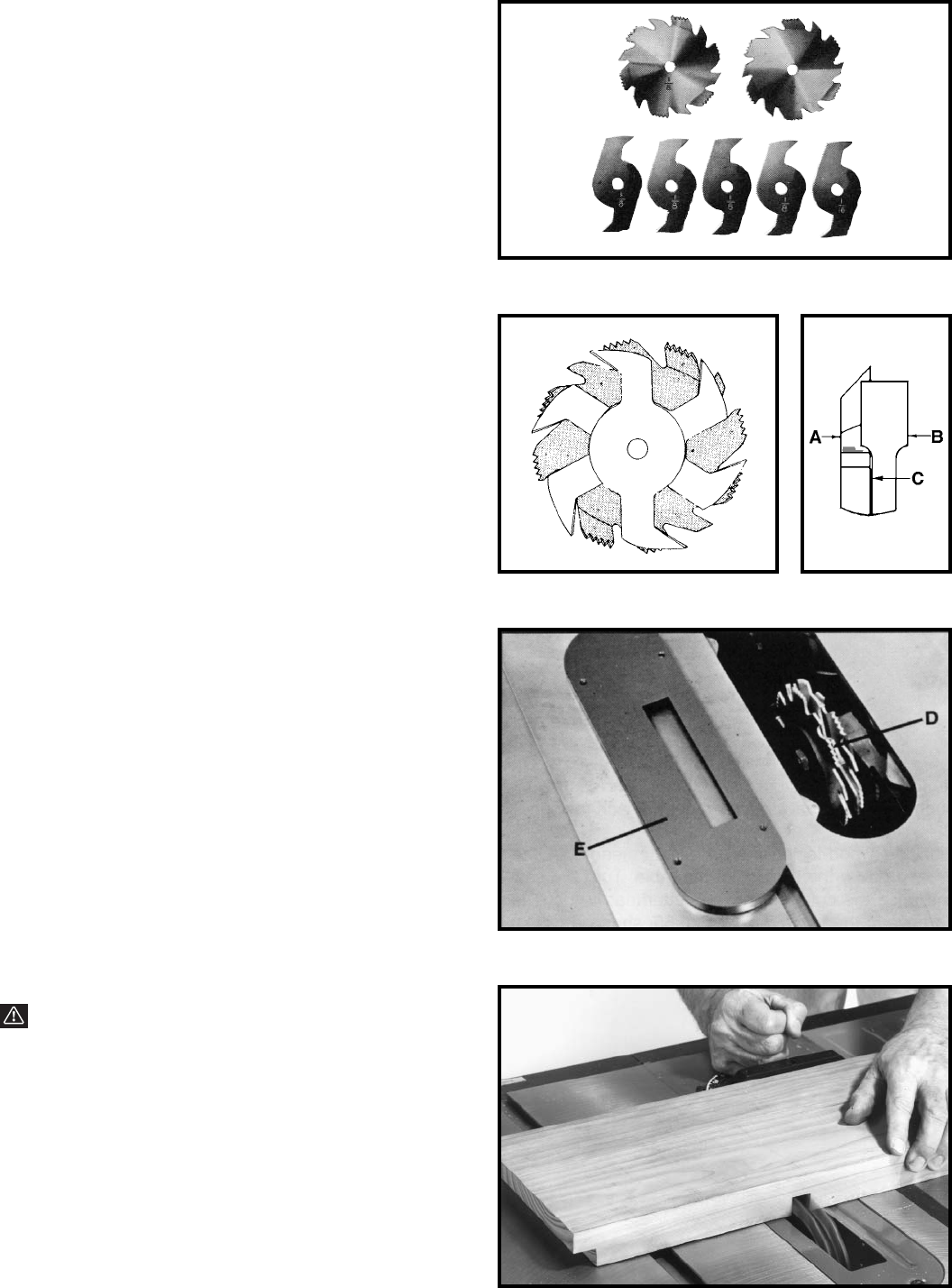
22
Fig. 58
Fig. 57
Fig. 54
Fig. 55 Fig. 56
The dado head set (D) Fig. 57, is assembled to the saw
arbor in the same manner as the saw blade. The guard,
splitter and anti-kickback finger assembly cannot be
used when dadoing and must be removed from the saw.
In place of the guard, auxiliary jigs or fixtures and push
sticks and featherboards should be used. Also, the
accessory dado head table insert (E) Fig. 57, must be
used in place of the standard table insert. Fig. 58, shows
a typical dado operation using the miter gage as a guide.
WARNING: NEVER USE THE DADO HEAD IN A
BEVEL POSITION.
IMPORTANT: ALWAYS INSTALL BLADE GUARD
AFTER OPERATION IS COMPLETE.
USING ACCESSORY
DADO HEAD
Dadoing is cutting a rabbet or wide groove into the work.
Most dado head sets are made up of two outside saws
and four or five inside cutters, as shown Fig. 54. Various
combinations of saws and cutters are used to cut
grooves from 1/8″ to 13/16″ wide for use in shelving,
making joints, tenoning, grooving, etc. The cutters are
heavily swaged and must be arranged so that this heavy
portion falls in the gullets of the outside saws, as shown
in Fig. 55. The saw and cutter overlap is shown in Fig. 56,
(A) being the outside saw, (B) an inside cutter, and (C) a
paper washer or washers which can be used as needed
to control the exact width of groove. A 1/4″ groove is cut
by using the two outside saws. The teeth of the saws
should be positioned so that the raker on one saw is
beside the cutting teeth on the other saw.



